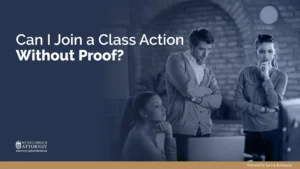Have you ever received a class action notice and wondered what happens to settlement money when people don’t cash their checks? Or perhaps you’ve been part of a lawsuit where the damages were too small to distribute individually but collectively added up to millions? This is where a fascinating legal concept called “cy pres” (pronounced “see-pray”) comes into play—a doctrine that ensures settlement funds continue to serve justice even when they can’t reach individual victims.
Imagine this: a company overcharges 10 million customers by $2 each. While $20 million is a significant wrong, mailing $2 checks would cost more than the checks themselves. Without cy pres, the company would essentially get away with wrongdoing. Cy pres solves this problem by directing those funds to organizations that protect future consumers from similar harm.
What Exactly is a Cy Pres Award?
The term “cy pres” comes from the Norman French phrase “cy près comme possible” meaning “as near as possible.”. Originally used in trust and estate law when a charitable gift couldn’t be fulfilled as directed, it now commonly applies to class action settlements where it’s impossible or impractical to distribute all funds to class members.
In essence, cy pres allows courts to approve distributing unclaimed or undistributable settlement funds to nonprofit organizations whose missions align with the interests of the class members. This ensures that the money serves the next best purpose relative to the lawsuit’s original intent.
How Cy Pres Awards Work in Practice
When a class action settles, several scenarios might leave money unclaimed:
- Unclaimed Funds: Class members can’t be located or don’t cash their checks
- Administrative Impracticality: The cost of distributing funds exceeds the individual amounts
- Small Individual Awards: Each class member’s share is too minuscule to distribute meaningfully
When these situations occur, courts can order cy pres distributions to appropriate charities or nonprofits rather than letting funds revert to the defendant (which would reward wrongdoing) or go to the state.
Table: Common Scenarios for Cy Pres Awards
| Scenario | Example | Cy Pres Solution |
| Unclaimed Funds | Only 30% of class members cash settlement checks | Remaining 70% distributed to related nonprofits |
| Administrative Impracticality | $1 million settlement with 2 million class members ($0.50 each) | Entire amount donated to organizations serving class interests |
| Small Individual Awards | $3 million settlement with 10 million class members | Funds directed to advocacy groups preventing similar harms |
How Cy Pres Awards Work in Class Actions
The cy pres process follows several important steps designed to ensure fairness and alignment with the original lawsuit’s purpose:
- Settlement Design: Parties propose cy pres as part of the initial settlement agreement
- Court Approval: The judge must approve both the concept and specific recipients
- Recipient Selection: Organizations are chosen based on their mission alignment with the lawsuit
- Fund Distribution: Money is transferred to approved organizations
- Reporting: Recipients typically report on how funds were used
Courts evaluate potential recipients based on:
- How closely the organization’s mission aligns with the lawsuit’s purpose
- The organization’s track record and effectiveness
- Geographic alignment with class members’ locations
- Whether the organization will use funds to benefit similarly situated people
Why Cy Pres Matters: Real-World Impact
Cy pres awards create meaningful social benefits that extend far beyond individual cases. Here’s how these funds make a difference:
1. Enhancing Access to Justice
Many cy pres awards support legal aid organizations that help low-income individuals access legal representation. For example, the Legal Aid Foundation of Los Angeles uses cy pres funds to assist over 2 million income-eligible people with issues like unfair lending practices, housing disputes, and consumer protection.
2. Advancing Consumer Protection
Organizations like the Consumer Federation of America (CFA) have used cy pres awards to fund groundbreaking work including:
- Advocacy for the Dodd-Frank Act that created the Consumer Financial Protection Bureau
- The Fiduciary Rule protecting retirement investors
- COVID-19 pandemic response that secured $13 billion in auto insurance refunds for consumers
3. Supporting Innovation in Legal Services
The Law Foundation of Ontario uses cy pres awards to fund innovative access-to-justice initiatives across Canada, including projects enhancing linguistic and rural access to justice and Indigenous people’s rights.
Controversies and Considerations
While cy pres serves important purposes, it has generated some debate. Critics argue that funds should primarily go to class members, while supporters note that without cy pres, defendants would often recover unclaimed funds, undermining the deterrent effect of class actions.
The American Law Institute recommends that courts first attempt to distribute residual funds to class members before turning to cy pres distributions. Additionally, there’s growing emphasis on selecting recipients with strong connections to the original lawsuit rather than unrelated charities.
Cy pres awards represent a creative legal solution that ensures wrongdoing doesn’t go unaddressed due to practical limitations. By directing unclaimed funds to organizations that advance consumer rights, access to justice, and public protection, cy pres extends the impact of class actions beyond the immediate parties to benefit society at large.
Next time you hear about a class action settlement, remember that even unclaimed funds might be working to create a fairer, more just society, all thanks to an ancient legal doctrine that continues to deliver modern justice.
Frequently Asked Questions
While cy pres originated in charitable trust law, its application in class actions is similar in spirit. It allows courts to modify the distribution of funds “as near as possible” to the original intent when exact distribution becomes impossible. This ensures the settlement purpose is fulfilled even when technicalities prevent perfect execution.
For cy pres to apply, the court must first determine that direct distribution to class members is impossible, impracticable, or economically infeasible. This finding is the prerequisite that allows funds to be redirected to cy pres recipients instead of reverting to the defendant.
The process typically involves: (1) identifying leftover settlement funds; (2) proposing charitable recipients aligned with the lawsuit’s purpose; (3) obtaining court approval; (4) distributing funds; and (5) sometimes requiring reporting on how funds were used. The court maintains oversight throughout to ensure the distribution serves the class’s interests.
Cy pres means “as near as possible.” In class actions, it allows unclaimed settlement money to go to charities that serve a purpose similar to the lawsuit’s goal, rather than going back to the company that did wrong.
Courts choose organizations whose mission aligns with the lawsuit’s purpose. For example, funds from a data breach case might go to digital privacy nonprofits, while funds from an environmental case might go to conservation groups. The court must approve all recipients. If you’ve been affected by a data breach, you may want to learn how to file a data breach claim to see if you qualify for any settlements.
No. Cy pres only applies to funds that cannot be distributed to class members either because they can’t be located or because individual payments would be too small to be meaningful.
It’s possible. Class members can often suggest or comment on proposed cy pres recipients during the settlement approval process. The court will consider these suggestions when deciding whether to approve the settlement distribution.
Yes, courts typically require that cy pres funds be used for purposes closely related to the lawsuit. Recipients may need to provide reports on how they used the funds, ensuring the money benefits people similarly situated to the class members.
Cy pres means ‘as near as possible’ in both contexts. In estate law, it applies when a charitable gift can’t be fulfilled as written. For class actions, it applies when settlement funds can’t be distributed to class members. The principle of finding the next best use remains the same.









